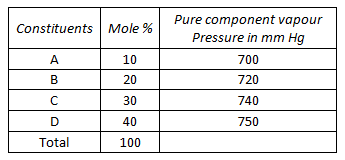Petroleum Refinery Engineering MCQs
Welcome to our comprehensive collection of Multiple Choice Questions (MCQs) on Petroleum Refinery Engineering, a fundamental topic in the field of Basic Chemical Engineering. Whether you're preparing for competitive exams, honing your problem-solving skills, or simply looking to enhance your abilities in this field, our Petroleum Refinery Engineering MCQs are designed to help you grasp the core concepts and excel in solving problems.
In this section, you'll find a wide range of Petroleum Refinery Engineering mcq questions that explore various aspects of Petroleum Refinery Engineering problems. Each MCQ is crafted to challenge your understanding of Petroleum Refinery Engineering principles, enabling you to refine your problem-solving techniques. Whether you're a student aiming to ace Basic Chemical Engineering tests, a job seeker preparing for interviews, or someone simply interested in sharpening their skills, our Petroleum Refinery Engineering MCQs are your pathway to success in mastering this essential Basic Chemical Engineering topic.
Note: Each of the following question comes with multiple answer choices. Select the most appropriate option and test your understanding of Petroleum Refinery Engineering. You can click on an option to test your knowledge before viewing the solution for a MCQ. Happy learning!
So, are you ready to put your Petroleum Refinery Engineering knowledge to the test? Let's get started with our carefully curated MCQs!
Petroleum Refinery Engineering MCQs | Page 1 of 34
Discover more Topics under Basic Chemical Engineering
